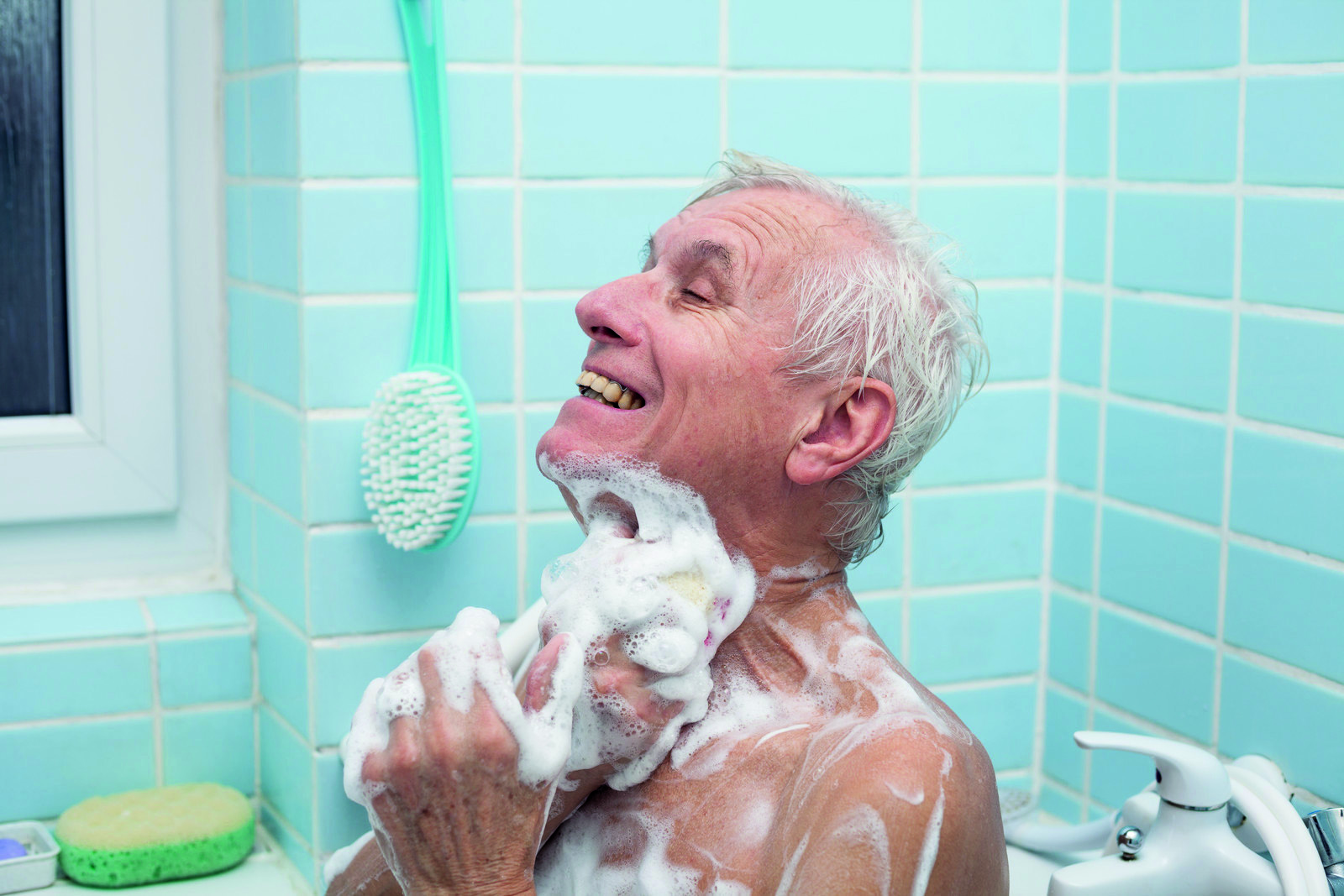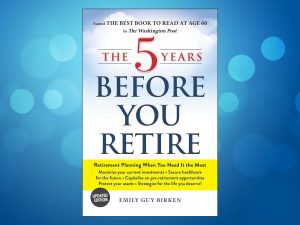By Pat Irwin
What matters
Does personal hygiene really matter that much for seniors? Let’s look at the benefits of and issues surrounding personal hygiene. They range from physical health and psychological well-being to general self-esteem.
Physical health: Many bodies shed a layer of fat as they age, while a reduced blood supply leaves the skin thinner and more fragile, making it easier for germs to invade. Proper cleansing removes bacteria that can cause odours and infections. However bathing once or twice a week is enough for seniors to avoid skin breakdown and disease. It is important to know that the sense of smell declines with age—a three-day-old shirt might smell just fine to Dad. In addition, memory issues can confuse a hygiene routine—a shower “a few days ago” might have actually been a week ago. Marking baths on a calendar can help.
A whole-body check while washing provides the chance to review any irregularities or issues, such as stubborn sores or moles, allowing early detection and cure. Look out for lumps, bumps and bruises, as well as bodily changes that might indicate a health problem.
Psychological well-being: Good grooming presents a positive image that reflects and engenders respect, and helps to create a nicer visiting atmosphere. Being clean and well-groomed inspires confidence and a good opinion in others, and can give the individual a generally better mental outlook—the difference between living better and living well.
Cognitive wellness: Hygiene routines such as bathing, oral care and hairdressing help to establish a daily routine that gives structure and purpose to daily life, and can invoke positive memories of a previous life. Lack of self-care is often an early indicator of depression or a cognitive illness such as dementia.
Does it have to be a bath?
Good hygiene need not entail a shower or bath; a sponge bath will suffice. A warm washcloth on the armpits, groin, genitals, feet and any skin folds can provide a full cleansing and helps minimize body odour between full baths. There are numerous cleansing products such as waterless cleansers, bathing wipes and no-rinse shampoos. It’s essential to clean the “personal area” thoroughly to prevent urinary tract infections. Incontinence briefs should be checked every two hours or so to avoid chafing or introducing infection.
Why some seniors object
In recent years, numerous styles of walk-in showers, sit-down baths, incontinence briefs and personal-
care products have taken personal hygiene “out of the closet” and into everyday life. Still, many seniors object to performing—and especially receiving—personal care. What’s going on? Here are some clues.
• A shower or bath was not part of the daily routine 60–70 years ago; bathrooms and hot water were rare and old habits are set in stone.
• Getting in and out of a tub can be painful or frightening. There are many tools that can help, such as grab bars, mats, cut-outs, and barrier-free showers, but listen to your loved one about what they prefer—maybe a tub or shower is just not for them.
• Shortness of breath from asthma or heart issues can make bathing or showering seem stressful
and strenuous.
• Many people with depression or dementia resist bathing because of a fear of water, discomfort with a slippery floor or feel overwhelmed when water is running on their head, face, and skin.
• Individuals living with dementia may also find the interference and touching involved in bathing to be invasive or overwhelming. They might also need “cues” to guide and reassure them through the process
“I just heard from the agency’s supervisor that Mom was rude and combative when they tried to give her a shower!”
Alicia, always perfectly groomed, has her own beauty routine. She is of the generation who had a weekly wash and set, and she never, ever gets her hair wet. She likes to do things in her own time and certainly doesn’t want a shower at 4pm! Bathing “on command” makes her feel pushed around and disrespected. Alicia has always given herself “birdbaths” and finds the shower scary and invasive. As a survivor of the Holocaust, she resists being ordered around and is frightened of others in her personal space.
Being clean and well-groomed inspires confidence and can give a better mental outlook.
“It’s embarrassing, but my father really doesn’t smell very good. We got him a lovely walk-in tub, but he hates taking a bath.”
In fact, Albert has very sensitive skin that flakes and scabs easily, and water exacerbates the problem. Bathing and towel drying are painful, but he doesn’t like to mention it. He’s tried several strong soaps but they sting. His dislike of harsh soaps extends to washing his clothes. It takes them a few weeks to get soft and comfortable again—and who cares if they smell a bit by then? The walk-in tub was expensive and his kids are so proud of it. However, he has to get in naked, and he shivers as he waits for the tub to fill and then shivers again while the tub drains before he can open the door and get out.
“Mr. Decker refuses to let us help him wash or change his clothes.”
Hans Decker is a gay man in his 80s. Old prejudices have made him a very private person. He is shy of being naked in front of female caregivers and therefore showers alone, as quickly as possible—but he sometimes slips as he rushes and doesn’t always getting completely clean. If his incontinence products need to be changed, he waits as long as possible and then copes alone, sometimes hiding his dirty pull-ups rather than letting anyone see.
Personal hygiene routines are something most of us take for granted—a shower, brushing teeth, getting dressed in clean clothes. For many, not being able to do these things independently is frustrating or depressing.
So what about our three friends?
Alicia’s family realized they had totally overlooked the impact of having a stranger shower their mom. They hired a Polish caregiver who spoke Alicia’s native language and arranged for her to visit three mornings a week and to respect the lovely hairstyle by always using a shower cap. The two would spend some time chatting, give Alicia a gentle shower with Alicia herself using the hand-held wand, and then relax with a cup of tea, apply Alicia’s makeup and put on clean clothes so that Alicia was ready to start her day. No more complaints!
Albert, with some coaxing, asked his friend at the local “farmacia” about solutions for sensitive skin. Special soap and lotion were available by prescription, all free on the provincial drug plan! He climbed into the new tub, used the hand-held attachment and tried the
soap in a lukewarm shower, followed by gentle drying with a microfibre towel and a coat of the lotion. Instant relief! His son whisked away from his clothes while he was busy and started rotating them week by week, resulting in a much sweeter-smelling dad.
The director of care at Hans Decker’s retirement home recommended one-on-one morning care, and the family hired a male personal support worker to arrive at 8am each day. The caregiver took time to learn about Hans’ interests, and tied the caregiving routine to their daily activities—“Let’s have a shower now, then go check out that new coffee shop at the mall.” A clean start to an active and enjoyable day. Something as basic as personal hygiene lies at the heart of who we are, how we present ourselves to the world, and how we are treated and perceived. Imagine how difficult it is to accept help with such a private activity. It takes research, thought, skill and compassion—and the result is definitely worth it.
Pat M. Irwin, BA, AICB, CPCA, is the president of ElderCareCanada and a professor of distance learning at Centennial College.













